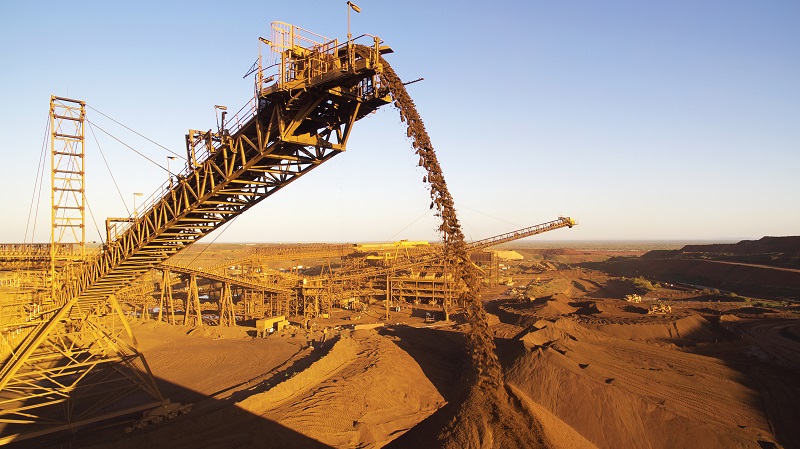 Fortescue Metals Group Ltd. achieved a significant milestone in the development of its iron ore operations in the Pilbara, celebrating first ore through the ore processing facility at the Eliwana mine and rail project in the Western Hub. Fortescue Chief Executive Officer Elizabeth Gaines, and Deputy Chairman Mark Barnaba celebrated the official event on site at Eliwana with Hon. Bill Johnston, Western Australia minister for mines and petroleum, energy and industrial relations, and representatives of Fortescue’s native title partners, the Puutu Kunti Kurrama and Pinikura People, members of the Fortescue Board of Directors and the Core Leadership team.
Fortescue Metals Group Ltd. achieved a significant milestone in the development of its iron ore operations in the Pilbara, celebrating first ore through the ore processing facility at the Eliwana mine and rail project in the Western Hub. Fortescue Chief Executive Officer Elizabeth Gaines, and Deputy Chairman Mark Barnaba celebrated the official event on site at Eliwana with Hon. Bill Johnston, Western Australia minister for mines and petroleum, energy and industrial relations, and representatives of Fortescue’s native title partners, the Puutu Kunti Kurrama and Pinikura People, members of the Fortescue Board of Directors and the Core Leadership team.
“Eliwana is the next important stage of development of Fortescue’s world-class, integrated operations,” Gaines said. “Exploration commenced in this area in 2006, and we have now delivered a new 30-million-metric-ton-per-year dry ore processing facility and infrastructure, along with 143 kilometers of rail which is in the final stages of construction.”
Construction of the mine, village and infrastructure was completed in 12 months, on time and one budget, she added.
“Fortescue has a vision to drive economic growth and contribute to thriving local communities, and our investment in the Eliwana mine and rail project will continue our strong track record of delivering against this goal,” she said.
Minister for Mines and Petroleum Johnston said the project created 2,000 jobs during construction and will create 500 full-time site positions as the team move into operations.
“Fortescue’s Eliwana mine will deliver a significant boost to Western Australia’s economy, during the post-COVID-19 recovery phase, and contribute to the state’s ongoing successful iron ore industry,” he added.
Fortescue is one of the largest employers of Aboriginal people, including 14% of the Eliwana operations workforce, according to Gaines.
“The Eliwana project has delivered a significant boost to the state and industry, with contracts valued at A$1.83 billion awarded to Australian businesses,” Gaines said. “This includes contracts awarded to 290 West Australian businesses, with local procurement totaling 84% of the project spend.”




